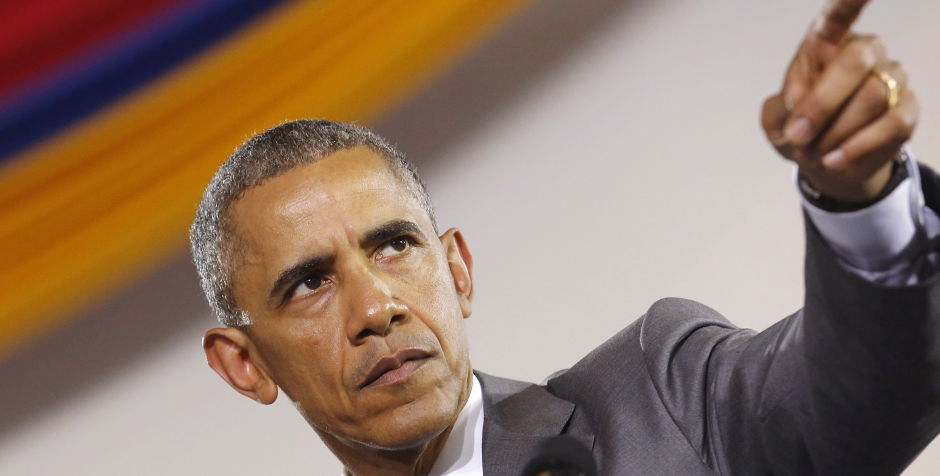Escaping Tyranny
Our great nation was founded for one primary reason – to escape tyranny.
Our Constitution was written and our system of governance was designed as a safeguard against the brand of tyranny our Founders knew all too well under the oppressive rule of King George III.
England, as an Absolute Monarchy, was ruled by a king who wielded nearly limitless power over his subjects.
On a whim, the king could simply dispense with the law – known as the dispensing power or legally known as non obstante – acting as if the law simply did not exist.
The Divine Right of Kings – the belief that “kings derived their authority from God and could not therefore be held accountable for their actions by any earthly authority such as a parliament” – was a commonly accepted belief amongst monarchs.
A ruler who possessed both the belief that no man can hold him accountable AND the power to dispense with the law is exactly the type of executive our Founders were determined to avoid.
Running from the old, tyrannical system of governance of England, the Continental Congress drafted the Articles of Confederation deliberately excluding an executive. The absence of an executive, however, would prove to be merely one of its many weaknesses, leading to the breakdown of the system it put in place.
Though the Articles ended in failure, it would, however, help our Founding Fathers strike a balance between a tyrannical and non-existent executive power. In the U.S. Constitution, the Separation of Powers is at the center of maintaining that balance.
James Madison said it best in Federalist Paper No. 47:
The accumulation of all powers legislative, executive and judiciary in the same hands, whether of one, a few or many, and whether hereditary, self appointed, or elective, may justly be pronounced the very definition of tyranny.
This new Executive would be endowed with his own distinct set of powers, while providing “Checks and Balances” to prevent him from wielding absolute power as the kings of old did.
Yet over the years, the balance has become upset as more power has been placed into the hands of the presidency. And as more power is transferred, the more blurred the line becomes between constitutional Executive action and unconstitutional Executive action.
Every President – with the exception of William Henry Harrison who died shortly after taking office – used Executive actions to “take care that the laws be faithfully executed.”
But as James Madison also said in Federalist Paper No. 47, “The magistrate in whom the whole executive power resides cannot of himself make a law . . . .”
There’s THE distinction. A constitutional Executive action ensures the laws are being faithfully executed while not creating laws independent of Congress.
This is why President Obama’s Executive action unilaterally rewriting our nation’s immigration laws clearly falls into the unconstitutional category.
When Congress did not enact the DREAM (Development, Relief, and Education for Alien Minors)Act, President Obama “took an action to change the law,” suspending deportation for “as many as 4 million undocumented parents of U.S.-born children.”
Had the DREAM Act been passed, President Obama would have been able to sign into law the immigration reform he was looking for. But instead, when he didn’t get his way, he simply dispensed with the law and did what he wanted.
These are the types of actions our Founders were trying to escape as a new nation. So, Mr. President, you’re correct; you’re “not a king.” You cannot simply dispense with laws you do not like, and you do not have a Divine Right to go unchecked by any earthly power.
The Supreme Court will hopefully see to it that the President does not go unchecked as it has agreed to tackle this landmark case, finally putting an end to “the impermissible overreach that has become the hallmark of this president.”
At the ACLJ, we have been defending our Constitution against this imperial President every step of the way and are currently preparing a critical amicus brief at the Supreme Court to stop President Obama’s lawlessness and defend the Separation of Powers.
